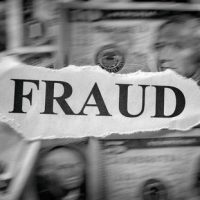Understanding Fraudulent Misrepresentation In Business Deals

When you sign a contract, you want to be reasonably certain that the other party is honest and operates in good faith. Businesses, however, sometimes find themselves entangled in disputes that arise from fraudulent misrepresentation. In this article, the Columbus business torts attorneys at Kohl & Cook Law Firm, LLC, will discuss the concept of fraudulent misrepresentation and how it applies to your market dealings.
What is fraudulent misrepresentation?
Technically speaking, fraudulent misrepresentation is a false statement that is made to intentionally induce another party to act or not act, but mostly, to enter into a contract. To qualify as fraudulent misrepresentation, the misrepresenting party must either know the statement is false or be reckless as to its truth. The party who relied on the misrepresentation must suffer some form of harm under the law to pursue a fraudulent misrepresentation claim.
Unpacking fraudulent misrepresentation
To prove fraudulent misrepresentation, you must prove several elements. These include:
- False statement – You must establish that a false statement of material fact was made. In other words, the statement was untrue at the time it was made and relates to something important enough to influence a reasonable person’s decision.
- Foreknowledge of falsity – The individual making the fraudulent statement must know that it was false, or made recklessly without caring whether or not it was the truth.
- Intent to deceive – You must establish that the misrepresentation was made with the intention to induce the other party to rely on it to sign a contract (for example).
- Reliance – You must have relied on the false statement when signing the contract.
- Damages – Your reliance on the false statement must have resulted in some form of harm or loss to move forward with a lawsuit.
Fact versus opinion
An important distinction in fraudulent misrepresentation claims is between statements of fact and statements of opinion. Generally speaking, misrepresentation claims are based on false statements of fact—not opinion. On the other hand, an opinion may be treated as a fact if it comes from someone who has specialized expertise, or if the opinion implies a factual basis that proves untrue. Courts will use a multi-factor test to determine if a statement is a fact or opinion.
Consequences and remedies for fraudulent misrepresentation
False representation can have serious consequences. The wronged party can rescind the contract, effectively voiding the agreement between themselves and the other party. This returns both parties to their original positions. In addition, the court may award damages, including compensatory damages to cover actual monetary losses and, in the case of egregious misconduct, punitive damages to punish the wrongdoing.
Talk to a Columbus, OH, Business Torts Attorney Today
Kohl & Cook Law Firm, LLC, represents the interests of businesses or individuals that have been wronged by fraudulent misrepresentation. You can file suit against the infringing party and recover damages related to your losses. Call our Columbus consumer lawyer today to schedule an appointment, and we can begin representing your interests right away.
